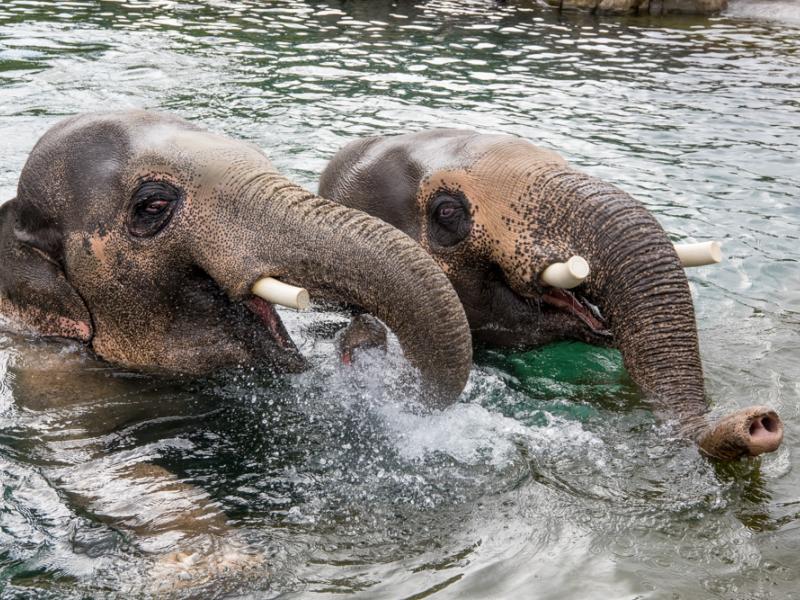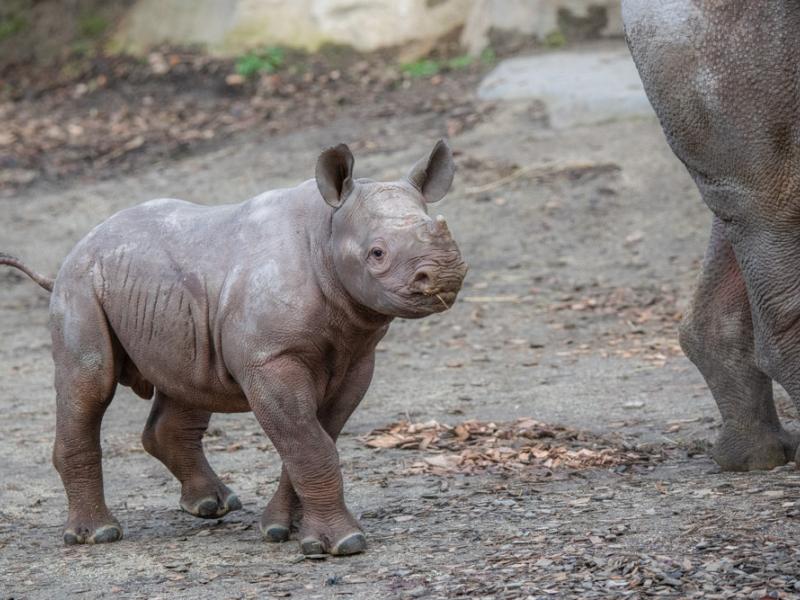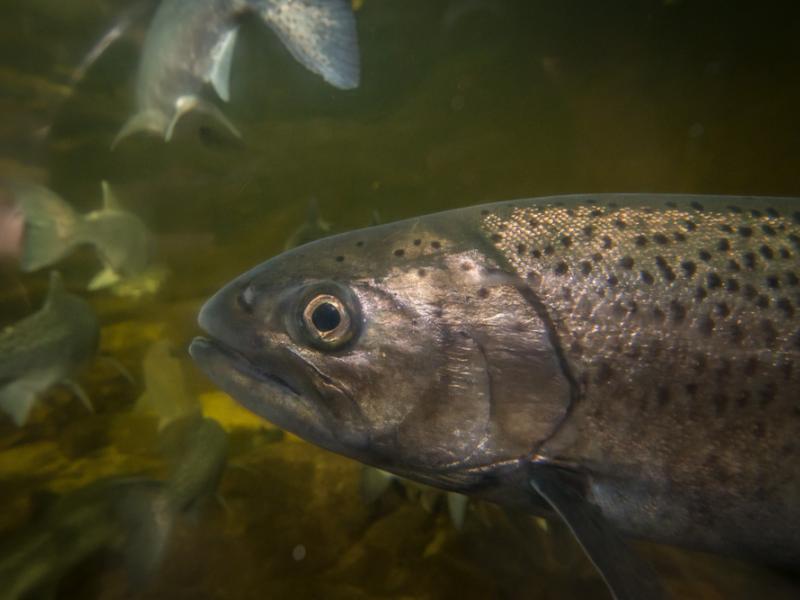Small actions that help frogs
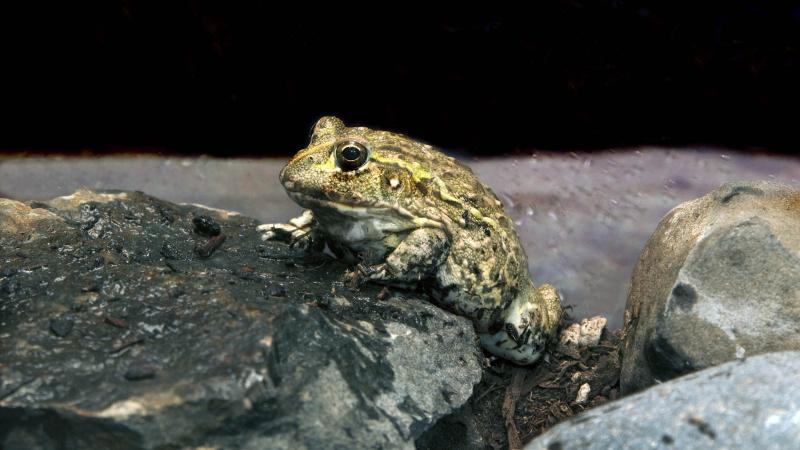
Because of their permeable skin, amphibians are often the first animals to suffer when something is wrong with the environment. Habitat destruction, diseases, pesticides and invasive species are among the many threats they face, and these threats can be even deadlier when they work in tandem. For instance, a frog may lose its resistance to a certain disease if pesticides weaken its immune system. Likewise, predatory invasive species are even more dangerous when native frog populations are already vulnerable because of habitat loss.
How you can help
-
Make your own non-toxic cleaners
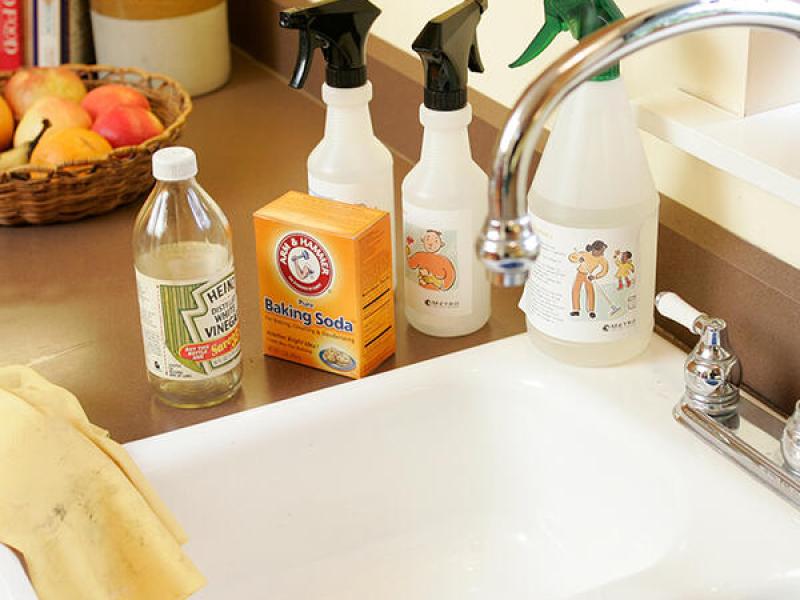
Using cleaners made from everyday ingredients like baking soda, rubbing alcohol and vinegar helps keep pollutants out of waterways and the air. Store-bought products used to clean laundry, surfaces and dishes often contain chemicals that can poison wildlife and contaminate ecosystems. Get cleaner recipes here.
-
Choose non-toxic garden pest control
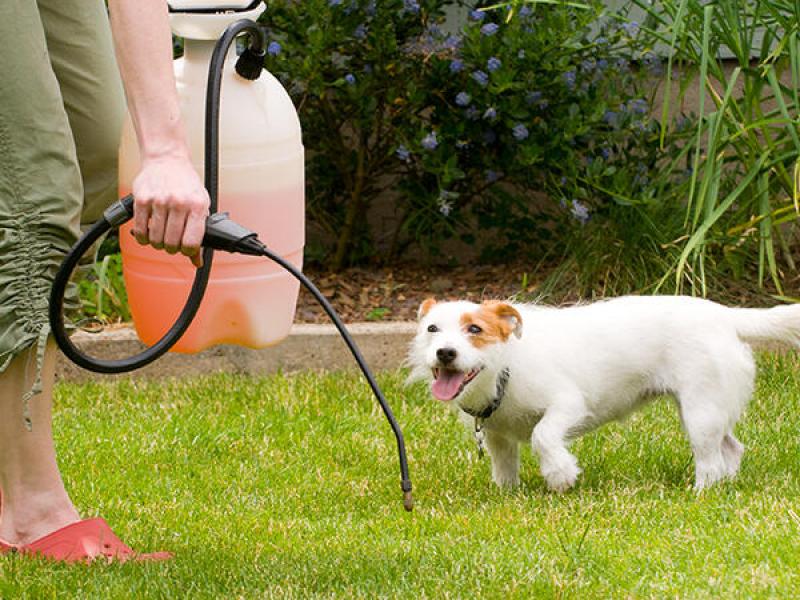
Garden products like pesticides and fungicides can harm wildlife — not just garden pests — and pollute the environment. Learn more about getting rid of pests without chemicals.
-
Purchase organic produce, especially for the “dirty dozen”
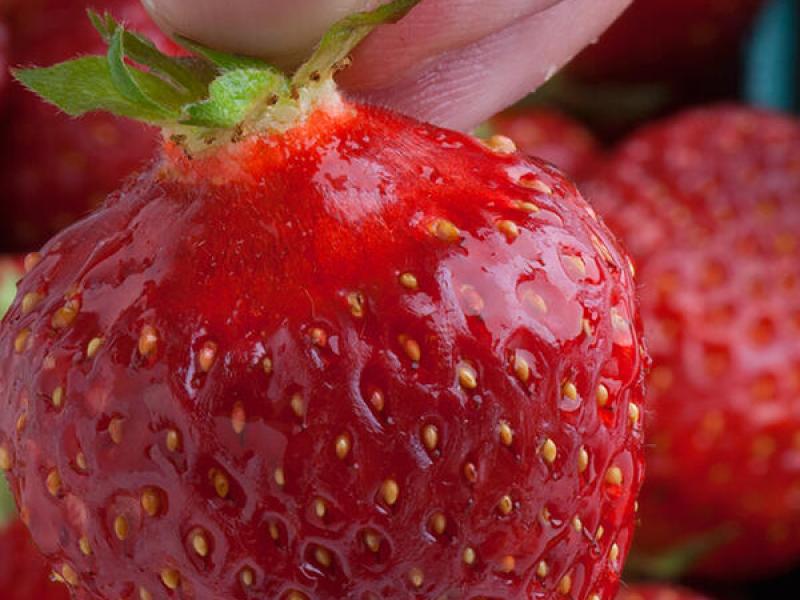
Choosing organic produce helps keep pesticides from harming pollinating insects, birds and other wildlife. Consumers on a budget can prioritize their organic purchases based on which produce have the highest pesticide residues. The "dirty dozen" includes peaches, apples, sweet bell peppers, celery, nectarines, strawberries, cherries, pears, imported grapes, spinach, lettuce and potatoes.
-
Use the recycler directory to dispose of electronics, batteries and more
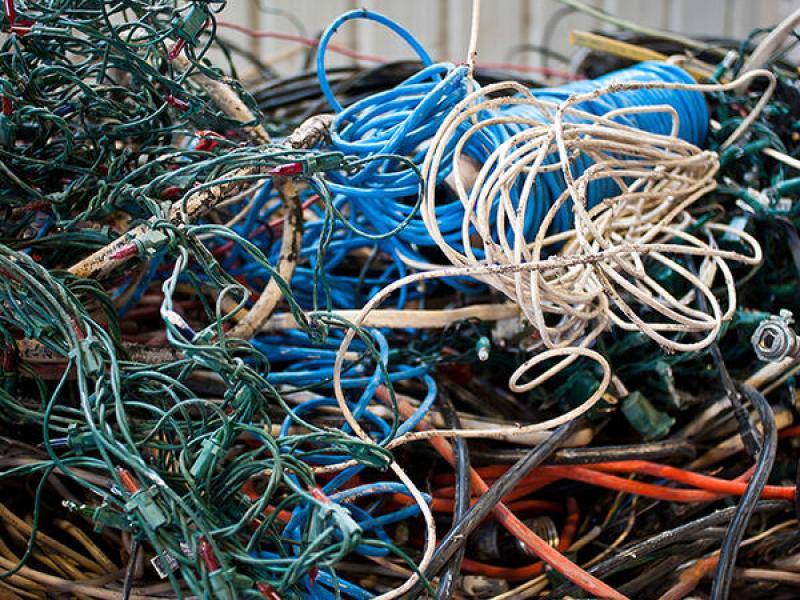
Responsible recycling of electronics, batteries, automotive equipment, packing peanuts and other "junk" not only keeps potentially hazardous material out of the environment, it helps keep wildlife habitat intact by reducing the need to extract more natural resources. Search the Portland Metro recycler directory to find out how to dispose of virtually anything.
-
Never leave home without reusable bags
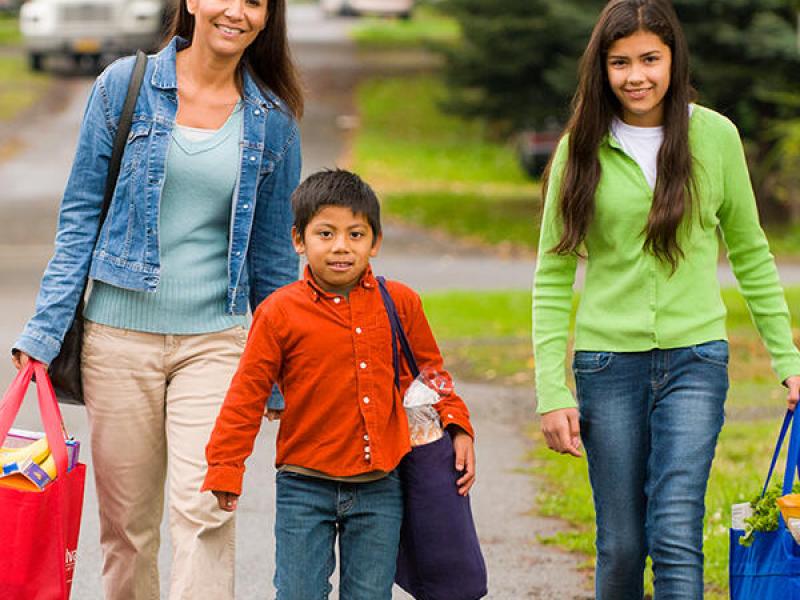
Keeping reusable bags handy in your car, purse or near your front door helps reduce your need for disposable plastic bags. Even when they're reused, many plastic bags eventually enter the environment, where they break down into toxic microscopic fragments that can contaminate soil, water and cause harm to wildlife.
-
Water your lawn and plants in the morning and evening
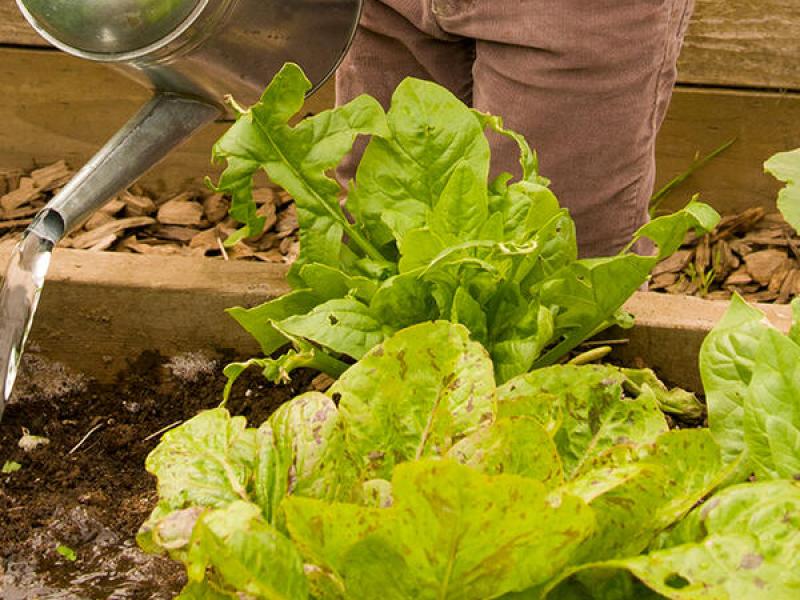
Conserving water leaves more water in the local waterways, and helps preserve aquatic habitats and the species that rely on them. Watering your lawn when the sun is low helps avoid evaporation. It also helps avoid excessive watering, which can carry pollutants and sediments back into the water source.
-
Adjust your thermostat by two degrees
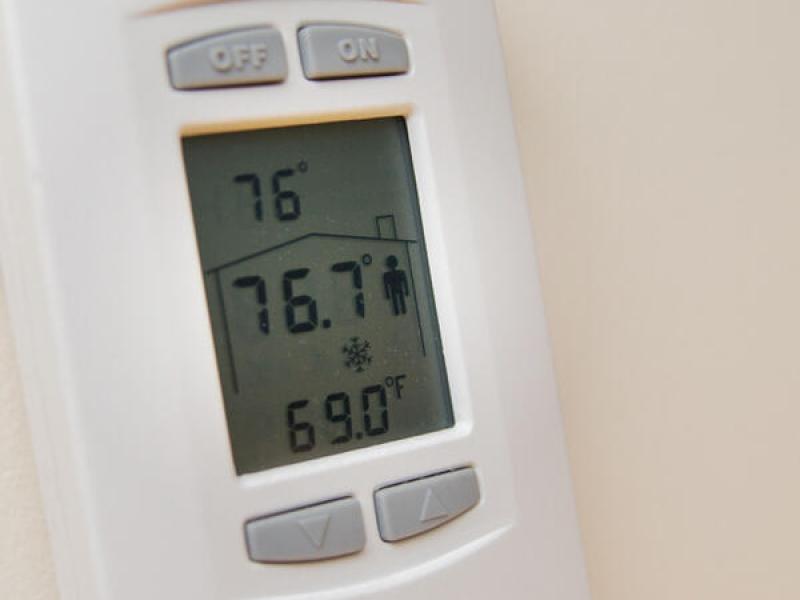
A difference of two degrees may not be noticeable in your living room, but it is in the Arctic. Small thermostat adjustments - higher in the summer and lower in the winter - reduce your energy consumption and your contribution to greenhouse gas pollution, which threatens wildlife and habitats worldwide. Adjusting your thermostat even more at night saves additional energy.
-
Become a Cascades Pika Watch volunteer
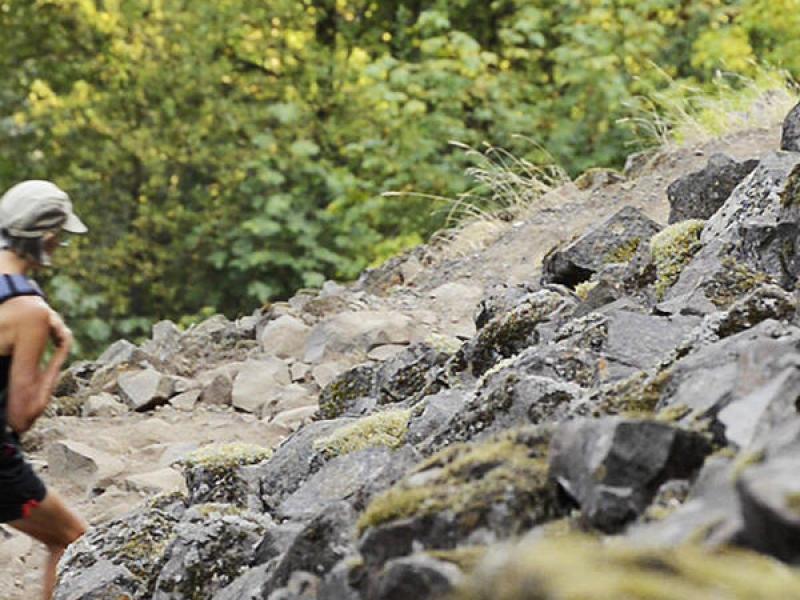
Pikas are widely considered a climate change indicator species. By monitoring pikas and collecting data, Cascades Pika Watch volunteers can help biologists determine population size, identify population declines, and potentially develop strategies for better protecting the habitat they depend on. Learn more about Cascades Pika Watch here.
-
Waste less food at home
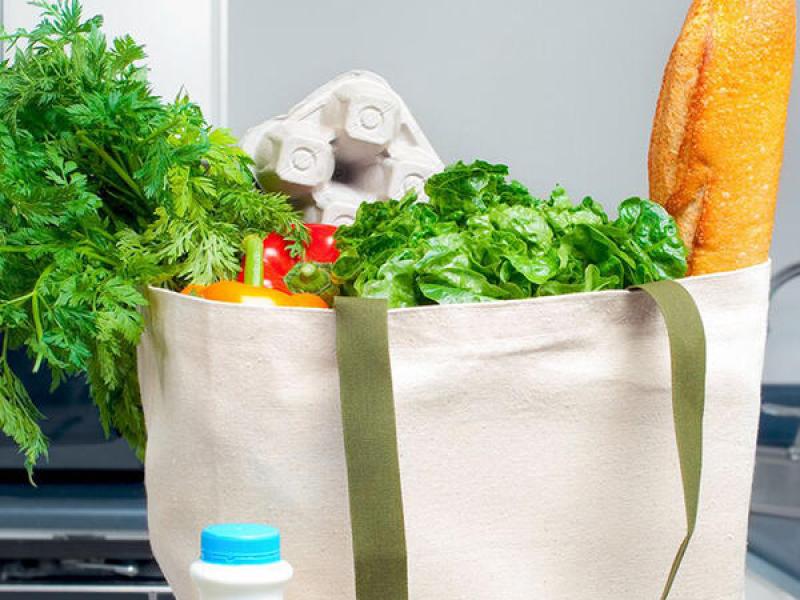
Forty percent of the food we buy never gets eaten, and wasted food hurts wildlife. Agriculture and food transportation can damage habitats worldwide, from the Arctic to the plains. Storing food properly, considering portions and shopping carefully can help prevent the wasting of food and prevent the burning of fossil fuels to transport it. These simple actions help protect wildlife and the habitats we all depend on.
-
Leave the leaves
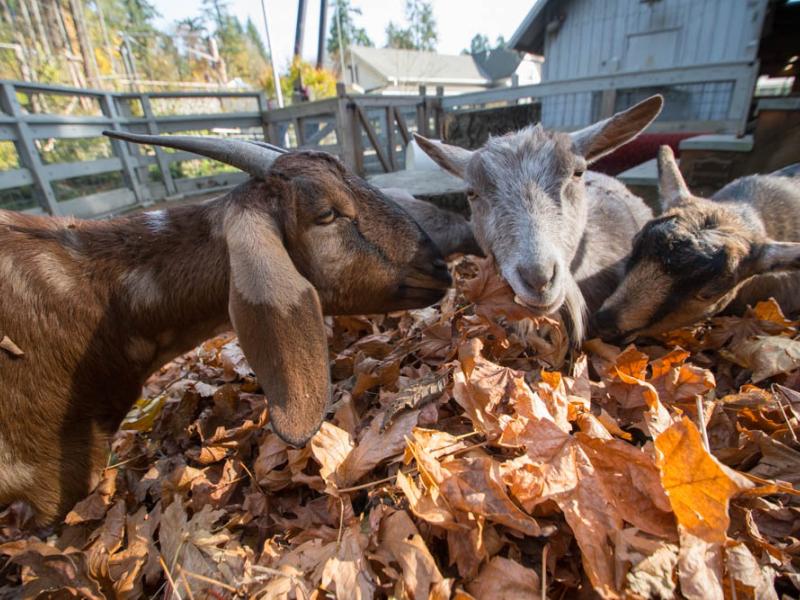
Leaving leaves where they land provides shelter for pollinators, invertebrates, birds and reptiles. These species help manage pests and increase pollination in your garden, so having a habitat for them can keep them around when you need them the most. By spring the leaves will compost and enrich your soil.


